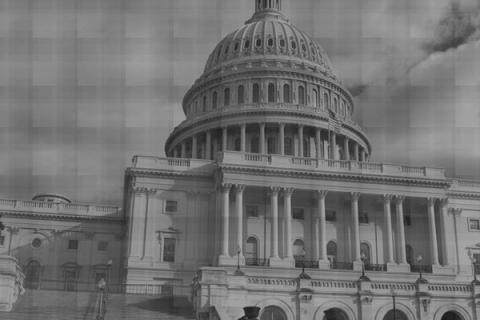Washington DC, and the institution of government in general, have lived up to their reputation of being an isolated island lost in a sea of reality. While this was especially evident as House Speaker John Boehner fiddled away at a round of golf with President Barack Obama this weekend, the political duopoly that establishment Democrats and Republicans have imposed over the American electorate appears to be headed toward a whirlpool of irrelevance.
The impetus stirring this whirlpool, as Reason Magazine's Nick Gillespie and Matt Welch pen in a recent Wall Street Journal piece, is the growing trend of Independents who have whittled away the dominance of Republicans and Democrats in their share of voter support. Harris polls in the 1970's showed that Democrats and Republicans had a relatively high share of voter support, with 49% choosing Democrat and 31% choosing Republican. Now, 35% choose the Democrat, 28% choose Republican, and 28% choose no party affiliation.
In a poll conducted by the Reason Foundation themselves, in association with the Roof Foundation, the plurality of those surveyed noted that they could trust neither party to govern the country better. Interestingly enough, in a non-scientific interactive poll posted by the Wall Street Journal, almost 90% of respondents said that they would vote for a third party.
Going beyond polls, the article brilliantly puts into perspective the decline of the Republican and Democrat duopoly by utilizing an economic analogy. While duopolies in the private sector (e.g. Kodak and FujiFilm) have proven successful for a certain period of time due to being the only corporations in the market, they are also vulnerable to the inevitable competition brought about by emerging companies.
"Economists have paid less attention to the chief vulnerability of duopolies: How collusion against the interests of customers produces an inevitable revolt, sweeping one or both dominant players into the dustbin of history [...] There is nothing stable inherently stable about two organizations dominating a particular market in the hurly-burly of modern American life. In fact, there are many reasons to suggest that such arrangements are unstable."
In the private sector, this only "worked as long as consumers had nowhere to turn." In the public sector, voters are having a similar experience. Thanks to the Tea Party, the internet, and social media networks which give Independents a greater voice, the rising Independent electorate now possesses other options other than the same old establishment icons.
Independents certainly have their work cut out for them in challenging the current political duopoly at this time. The Republican and Democrat parties will not passively surrender their entrenched positions. However, despite the remaining hurdles, Gillespie and Welch give us hope for the future, a future that could fnally witness much more competition in the political arena.

